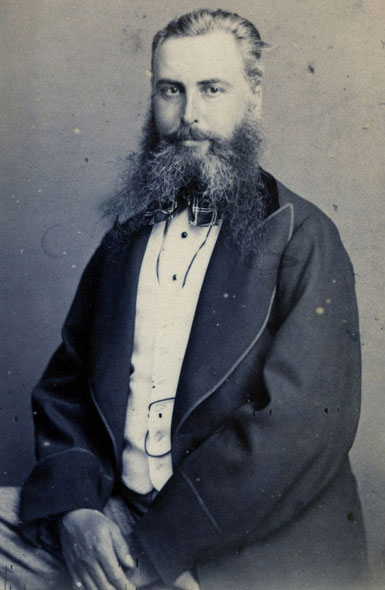Thomas Laxton on:
[Wikipedia]
[Google]
[Amazon]
 Thomas Laxton (1830 – 6 August 1893) was a
Thomas Laxton (1830 – 6 August 1893) was a
 Thomas Laxton (1830 – 6 August 1893) was a
Thomas Laxton (1830 – 6 August 1893) was a plant breeder
Plant breeding is the science of changing the traits of plants in order to produce desired characteristics. It is used to improve the quality of plant products for use by humans and animals. The goals of plant breeding are to produce crop varie ...
and a correspondent of Charles Darwin
Charles Robert Darwin ( ; 12 February 1809 – 19 April 1882) was an English Natural history#Before 1900, naturalist, geologist, and biologist, widely known for his contributions to evolutionary biology. His proposition that all speci ...
, best known for his hybridisation of peas.
Thomas Laxton was born in the village of Tinwell
Tinwell is a village and civil parish in the county of Rutland in the East Midlands of England. The population at the 2001 census was 209, increasing to 234 at the 2011 census.
Village
The village's name origin is dubious. Possibly, 'spring/str ...
, Rutland
Rutland is a ceremonial county in the East Midlands of England. It borders Leicestershire to the north and west, Lincolnshire to the north-east, and Northamptonshire to the south-west. Oakham is the largest town and county town.
Rutland has a ...
in 1830. He practised as a solicitor
A solicitor is a lawyer who traditionally deals with most of the legal matters in some jurisdictions. A person must have legally defined qualifications, which vary from one jurisdiction to another, to be described as a solicitor and enabled to p ...
in Stamford before his interest in horticulture led him to become an authority on plant hybridisation. By 1858 Laxton was breeding plants. Initially he worked from St Mary's Hill, Stamford and corresponded with Charles Darwin
Charles Robert Darwin ( ; 12 February 1809 – 19 April 1882) was an English Natural history#Before 1900, naturalist, geologist, and biologist, widely known for his contributions to evolutionary biology. His proposition that all speci ...
from this address. Early correspondence with Darwin referred to Laxton's work on hybridising peas. Laxton applied scientific methods to plant breeding, making careful observations of parent plants. He recognised the susceptibility of plants to disease
A disease is a particular abnormal condition that adversely affects the structure or function (biology), function of all or part of an organism and is not immediately due to any external injury. Diseases are often known to be medical condi ...
and resistance of these diseases by their American counterparts.
Laxton made observations on gooseberries and Darwin corresponded with him during the 1860s and 1870s on his work. He is probably widely remembered for his contribution to strawberry breeding. In 1872 he began to introduce strawberry varieties from his plant breeding work. Laxton moved the business to Bedford
Bedford is a market town in Bedfordshire, England. At the 2011 Census, the population was 106,940. Bedford is the county town of Bedfordshire and seat of the Borough of Bedford local government district.
Bedford was founded at a ford (crossin ...
in 1879 and in 1885 Kelly's Directory
Kelly's Directory (or more formally, the Kelly's, Post Office and Harrod & Co Directory) was a trade directory in Britain that listed all businesses and tradespeople in a particular city or town, as well as a general directory of postal addresses ...
identifies him as a 'seed grower and merchant' listed at 1 Harpur Place, Bedford. In 1884 he introduced his first major strawberry success 'Noble' a chance seedling of 'Excelsior' and 'American Sharpless'. Followed by 'King of the Earlies' in 1888. These two varieties formed the parentage of Laxton’s 'Royal Sovereign strawberry
The Royal Sovereign is a strawberry cultivar. It is one of the oldest varieties still widely grown.
History
The cultivar was created by Thomas Laxton in Tinwell, near Stamford, Lincolnshire, in 1892. Throughout the 19th Century, botanists had b ...
' in 1892.
Laxton married twice, with three daughters from his first marriage and four sons from his second marriage. Two sons, William Hudson Lowe Laxton (1866–1923) and Edward Augustine Lowe Laxton MBE (1869–1951) went into partnership to form Laxton Brothers in 1888. Thomas Laxton died in August 1893. The brothers recognised their father's horticultural contribution by introducing the pea 'Thomas Laxton' in his honour in 1898.
References
{{DEFAULTSORT:Laxton, Thomas English botanists English horticulturists Plant breeding 1830 births 1893 deaths People from Rutland Charles Darwin 19th-century British botanists